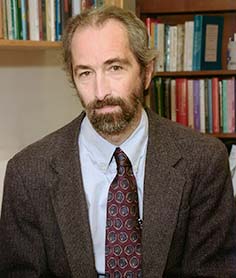Michael Lynch
Class of 1954 Endowed Professor - 2011 - 2016
Distinguished Professor (Emeritus) - 2005

Michael Lynch obtained his Ph. D. from the University of Minnesota in 1977, and immediately thereafter joined the faculty at the University of Illinois. In 1989, he moved to the University of Oregon as Program Director in Ecology and Evolution; and since 2001, he has been a faculty member at Indiana University. After working in the fields of limnology and population ecology for a few years, his research moved into the area of evolutionary and quantitative genetics, as well as conservation biology. From there his interests have expanded to the mechanisms responsible for the evolution of genome complexity.
He is currently working on a general theory that ties together a variety of unexplained patterns in comparative genomics, and with collaborators is attempting to estimate the rate and effects of spontaneous mutations. Lynch and his collaborators address these issues through empirical work with several model organisms (including the nematode Caenorhabditis and the microcrustacean Daphnia), and by the integration of computational analyses of whole-genome sequences with mathematical applications of population-genetic theory and a knowledge of the basic biology of molecules. This work spans the fields of ecology, evolution, genetics, and molecular biology.
Lynch is coauthor (with Bruce Walsh) of Genetics and Analysis of Quantitative Traits; past president and vice president of the Society for the Study of Evolution; and a fellow of the American Academy of Arts and Sciences and the American Association for the Advancement of Science. He has been a regular member of numerous NSF, NIH, and NRC panels, and has been a co-director of three NSF training grants: Genetic Mechanisms of Evolution; Evolution, Development, and Genomics; and the Causes and Consequences of Recombination.
He currently helps oversee the Daphnia Genomics Consortium, a group of investigators devoted to developing Daphnia as a model organism for evolutionary and ecological genomics, which is now in the midst of acquiring a complete genome sequence and tools for functional genomics for the species. About 30 graduate students and 30 postdoctoral associates have worked in his lab.

